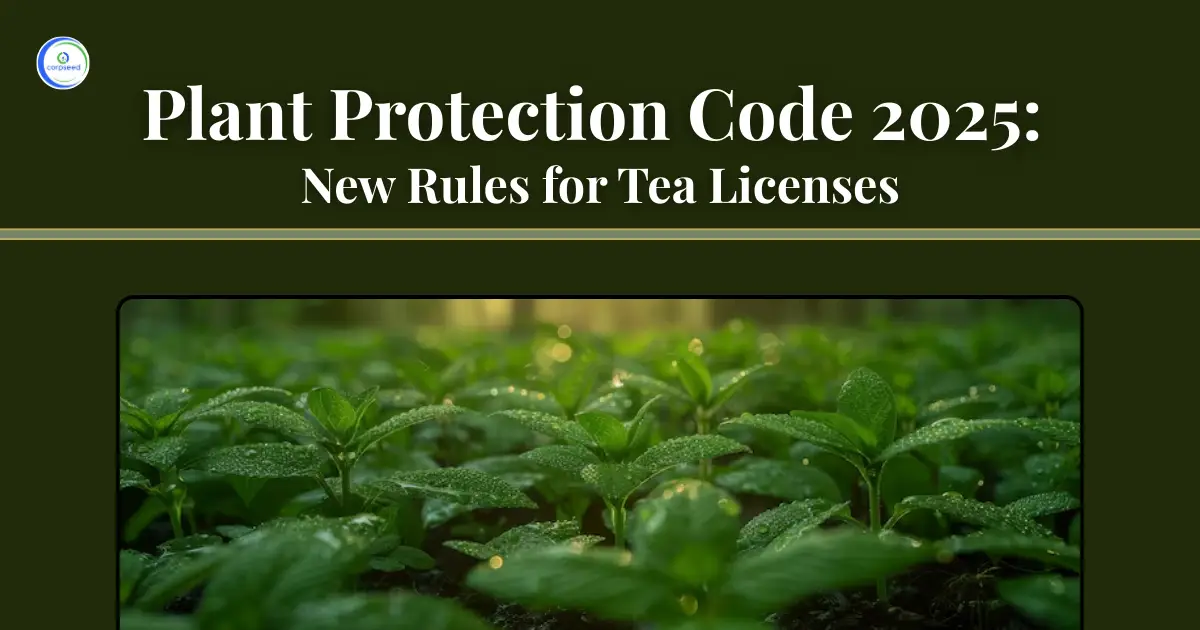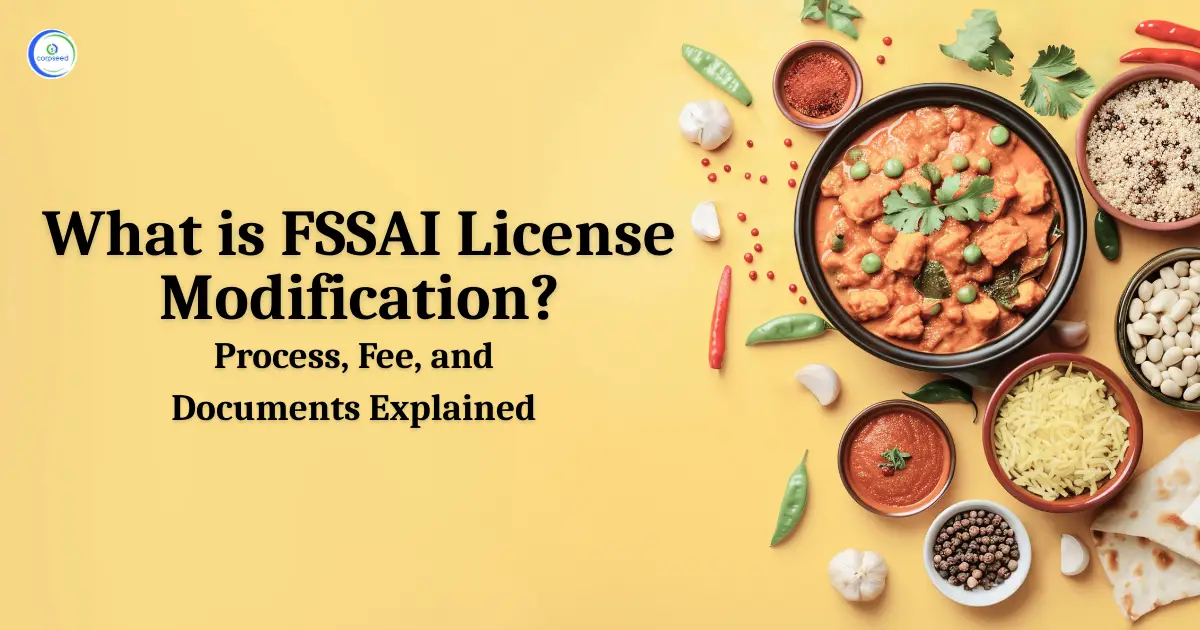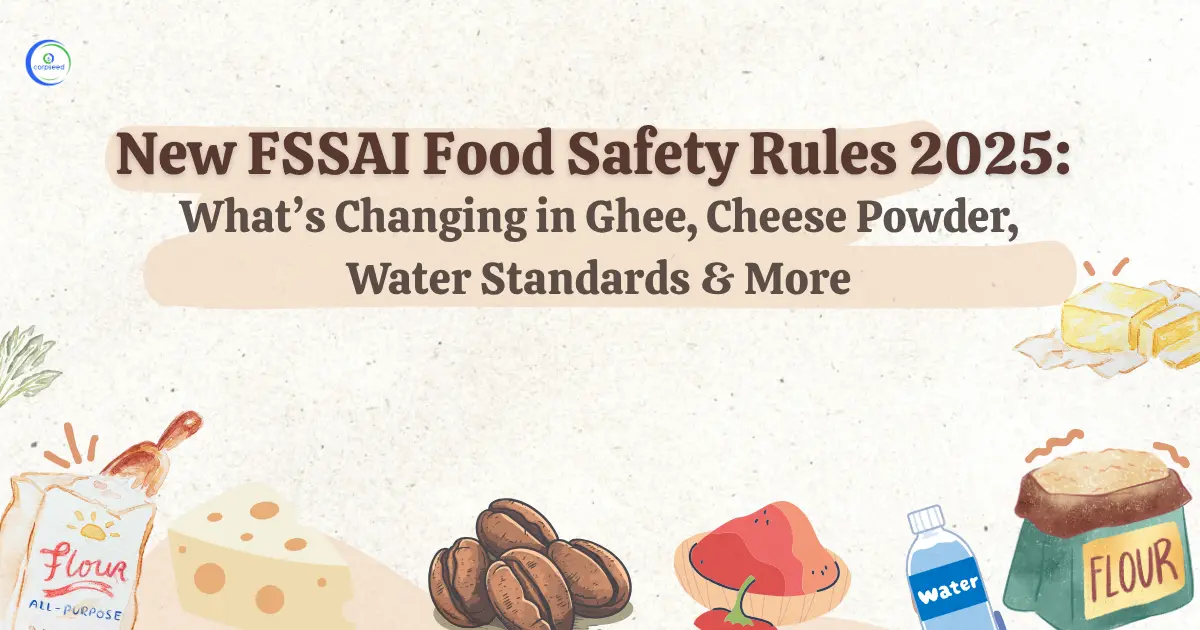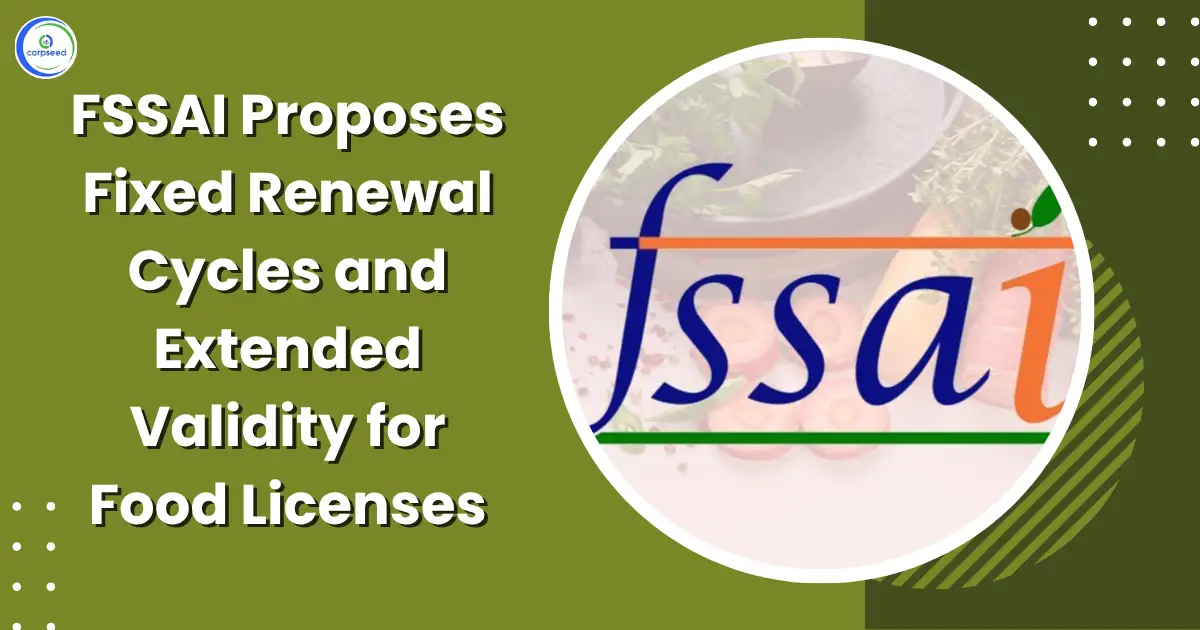Introduction: Food Laws and Standards
The Indian food processing industry is regulated by numerous laws and regulations which govern the aspects of, sanitation, licensing, and other essential permits that are mandatory to start up and run a food business. The legislation that dispensed with food safety in India was the Prevention of Food Adulteration Act, 1954 (hereinafter referred to as "PFA"). The PFA had been in place for over five decades and there was a need for change due to varied ins and outs which include the changing parameters of the food industry.
Table of Contents
--------------Blog Contact Form-------------
FSSAI regulates all other food-related laws. It specifically canceled eight laws that were in operation prior to the enforcement of FSSAI:
- The Prevention of Food Adulteration Act, 1954
- The Solvent Pull out Oil, De oiled Meal, and Edible Flour (Control) Order, 1967
- The Meat Food Products Order, 1973
- The Milk and Milk Products Order, 1992
- Essential Commodities Act, 1955 (in relation to food)
- The Fruit Products Order, 1955
- The Vegetable Oil Products (Control) Order, 1947
- The Edible Oils Packaging (Regulation) Order, 1998
Requirement of FSSAI:
FSSAI initiates harmonization of India's food rules and regulations as per international standards. It founds a new national regulatory body, the Food Safety and Standards Authority of India (hereinafter referred to as "FSSAI"), to develop science-based standards and procedures for food and to regulate and monitor the sale, manufacture, distribution, processing, storage, and import of food so as to ensure the availability of safe, healthy and wholesome food for human consumption. All food imports will therefore be subject to the provisions of the FSSAI rules and regulations which as notified by the Government on 5th of August 2011 will be applicable.
Core Regulations of FSSAI:
A. Signage and Customer Notices:
It is important to note that though the provisions of FSSAI do not specifically deliver for any statutory and regulatory requirements either for signage or customer notices, but it has certain provisions with regard to the advertisement of products by food business operators (FBOs).
Section 24 of the FSSAI delivers that no advertisement shall be made of any food that is misleading or breaks or deceiving the provisions, rules, and regulations made there under. No food operating business person shall engage himself in any unfair trade practice for the purpose of promoting the sale, supply, use, and consumption of articles of food or adopt any unfair or misleading practice including the practice of making any statement, whether orally or by visible or in writing representation which:
- Makes a wrong or misleading representation concerning the need for, or the usefulness;
- Gives to the public any guarantee of the efficacy that is not based on an adequate or scientific justification thereof, provided that where a defense is raised to the effect that such guarantee is based on adequate or scientific justification, the burden and responsibility of proof of such defense shall lie on the person raising such defense.
- Falsely represents that the foods are of a particular quality, quantity, standard, or grade composition;
Section 3 (1) (b) of FSSAI defines the term "advertisement" (which includes a "notice") as any audio or visual publicity, representation or pronouncement made by means of any light, gas, sound, smoke, electronic media, print, internet or website and includes through any notice, label, invoice, wrapper, circular, or other documents.
FSSAI being applicable to all food business operators (FBOs) in India, the provision with regard to advertisements would have to be complied with.
B. Packaging and Labeling:
FSSAI provides for separate packaging and labeling regulations known as Food Safety and Standards (Packaging and Labeling) Regulations, 2011 (hereinafter referred to as the "Packaging and Labeling Regulations") which lay down the statutory and regulatory necessities for packaging and labeling of products. A complete reading of the Packaging and Labeling Regulations shows that there are different kinds of products: Pre-packaged, Proprietary, and other definite products as mentioned in the regulations.
Regulation 2.12 of the Food Safety and Standards (Food Products Standards and Food Additives) Regulations, 2011 defines "proprietary food" as food that has not been packed and labeled as per standards. Regulation 1 (8) of the Packaging and Labeling Regulations defines "prepackaged" or "pre-packed food", as food, that is packed in a package of any nature, in such a manner that the contents cannot be altered without changing it and which is ready for sale to the consumer.
The Packaging and Labeling Regulations provide the general requirements for labeling of food products prescribed under the FSSAI, some of the packaging and labeling rules are as follows:
- Contents on the label shall be clear, prominent, indelible and easily readable by the consumer under normal conditions of buying and use;
- Label in pre-packaged foods products shall be completed in such a way that they will not become separated from the container;
- Pre-packaged food shall not be described or presented on any label or in any manner that is wrong, misleading or illusory or is likely to make an inaccurate impression regarding its character in any respect;
- Where the container is roofed by a wrapper, the wrapper shall carry the necessary information or the label on the container shall be readily readable through the outer wrapper and not obscured by it.
- The particulars of declaration required under these Rules to be mentioned on the label shall be in Hindi or English in Devnagri script: Provided that nothing herein contained shall prevent the use of any other language in addition to the language required under this regulation and regulations.
In addition to the above rules and regulations mentioned, every package of food shall also carry the following information on the label:
- Name of The Food;
- List of Ingredients;
- Date of Manufacturing or Packing;
- Best Before and Use By Date;
- Nutritional Information;
- Name and Complete Address of The Manufacturer;
- Net Quantity;
- Lot/Code/Batch Identification;
- Declaration Regarding Veg. And Non-Veg;
- Declaration Regarding Food Additives;
- Country of Origin for Imported Food; And
- Instructions for Use.
Since a large variety of food products are being imported into India, under the Packaging and Labeling Regulations 2011, it becomes compulsory to mention the country of origin of the food on the label of food imported into India, and when a food product undergoes processing in a second country which changes its nature, the country in which the processing is performed shall be considered as the country of origin for the purposes of labeling.
Therefore, the above are the statutory and regulatory requirements that are to be obeyed with regard to labeling of products that are sold in the Indian market as "pre-packaged goods".
C Licensing Registration and Health and Sanitary Permits
It is also important to note that FSSAI, being the only legislation applicable to the food industry throughout the country, will also apply as far as the national health and sanitary permits are concerned.
The Food Safety and Standards (Licensing and Registration of Food Business) Regulations, 2011 (hereinafter referred to as "License and Registration Regulations") govern the aspect of license and registration of a food business operator (FBO).
Under Regulation 2.1 of the License and Registration Regulations, all FBOs in the country are required to be registered or licensed in accordance with the Registration and License Regulations, hence no person shall begin any food business unless a valid license is possessed by the food business operator, and the conditions with regard to sanitary, safety and hygienic requirements have to be complied with at all times by them.
One of the major purposes of these conditions is to make sure that the food business operator maintains sanitary and hygienic standards as specified in each food category. It is hereby documented and declared as a matter of legislative determination that in the field of human nutrition, clean, safe, wholesome food is crucial to the health and well-being of the consumer of the country.
It shall be the deemed responsibility of the food business operator to obey the safety, labeling, and health and sanitary requirements laid down in the License and Registration Regulations. The labeling requirements are specified under the regulations and they need to be complied with all the time.
Penalties:
Penalties for not having FSSAI License or Registration are up to Two Lakh Rupees (approx. USD 4000). However, under Section 63, it provides that if any person or food business operator FBO (except the persons exempted from licensing under sub-section (2) of Section 31 of FSSAI), himself or by any person on his behalf who is obliged to obtain license, distributes, sells, manufacturers, stores or imports any article of food without license, shall be punishable with imprisonment for a term which may extend up to six months and also with a fine which may extend up to Five Lakh Rupees (approx. USD 9000).
Other Licenses:
The FSSAI being a central act has to be obeyed by all the food business operators in the country. However, India being a huge market, each state may have their local laws and regulations which may also need to be complied with. Some of the other approvals and licenses that a food operator (FBO) may be mandatory to get from various authorities under other laws include:
- Health and trade licenses from the municipal corporation of the relevant area
- Registration under the Shops and Establishments Act of the respective state
- Environmental clearance
- Verification certificate under the Standards of Weights and Measures Act, 1976 for each of the outlets issued by the Department of Legal Metrology of the respective areas
- Registration under the police act of the respective city/state
- No-objection certificate for fire prevention and safety
- Eating house license
- Liquor license.
- A license for playing music in restaurants is also required for playing recorded or live music.
- It is mandatory for a food business to obtain insurance from any insurance company with regard to public policy, product liability, fire policy, building, and assets. Other insurances though not mandatory may be useful if taken.
- Some of the other registrations and permissions may include registration under the Employees' Provident Funds and
- Miscellaneous Provisions Act, 1952 if it is engaging more than 20 employees.
- Registration is also required under the Central Excise Act, 1944 as in respect of goods specified in the Third Schedule of the said act, repacking, re-labeling, putting or altering retail sale price, etc. will fall into the category of manufacture. Subject to applicability, other statutory and regulatory compliances may also include
- registrations under the Income Tax Act, 1861, Customs Act, 1962, sales tax, service tax, and other labor laws.
Foreign Direct Investment in the Food Processing Industry:
Foreign Direct Investment (hereinafter referred to as "FDI") is permissible for all processed food products under 100% automatic route (except for items reserved for micro, small, and medium enterprises, where FDI is permissible under automatic route up to 24%), subject to applicable laws/regulations/securities and other conditions.
This portion of the site is for informational purposes only. The content is not legal advice. The statements and opinions are the expression of author, not corpseed, and have not been evaluated by corpseed for accuracy, completeness, or changes in the law.
BOOK A FREE CONSULTATION
Get help from an experienced legal adviser. Schedule your consultation at a time that works for you and it's absolutely FREE.









